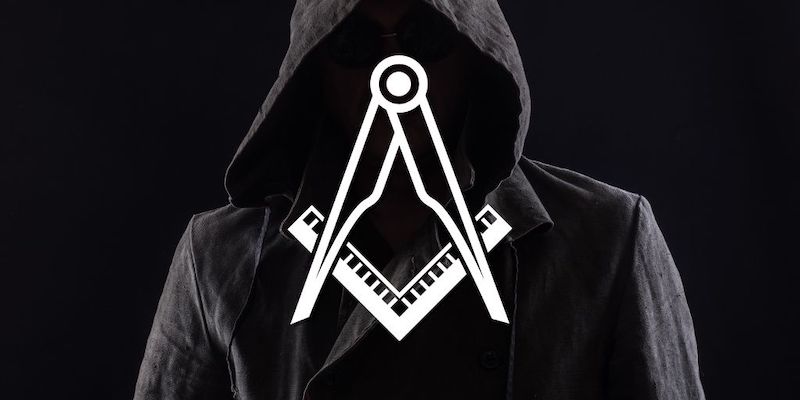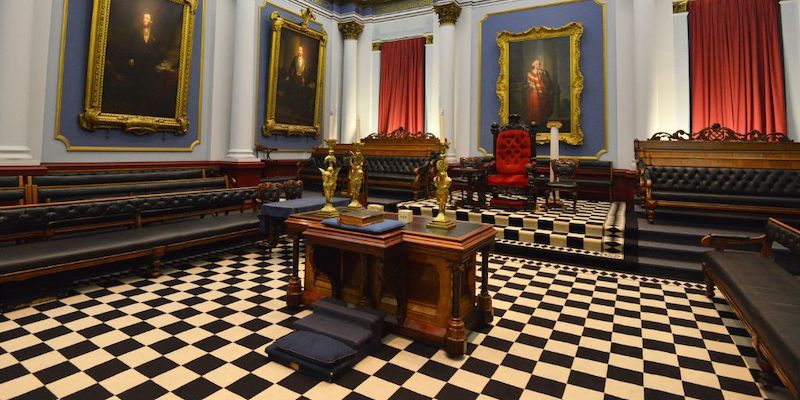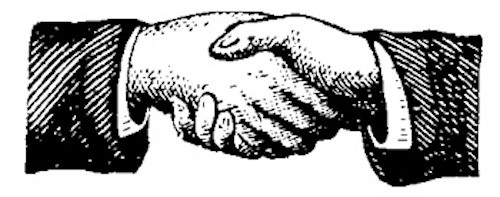Un-Masonic conduct is a term used to describe actions or words that are inconsistent with the values, objectives, and principles of Freemasonry.
As a member of the Freemasons, you are expected to conduct yourself in a manner that upholds the reputation of the organization.
Any behavior that brings Masonry into disrepute or reproach is considered un-Masonic conduct.
Examples of un-Masonic conduct include incivility, discourtesy, dishonesty, violence, or any behavior that has the tendency to cause damage or offense to others. It is also considered un-Masonic to introduce religious, political, or other divisive topics into a Masonic discussion.

What is Un-Masonic Conduct?
Un-Masonic conduct is any behavior that goes against these values and principles.
It can include actions or words that are discourteous, dishonest, violent, or offensive to others.
Un-Masonic conduct is defined as any behavior that may bring Masonry into disrepute or reproach to the institution. It is up to the Constituent Lodges to determine, in the light of the surrounding circumstances, whether any Mason’s conduct is un-Masonic.
Some examples of un-Masonic conduct include:
- Engaging in discriminatory behavior based on race, gender, sexual orientation, religion, or any other characteristic.
- Using Masonic membership or influence for personal gain or advantage.
- Behaving in a way that is disrespectful or discourteous to other members.
- Engaging in criminal behavior or actions that violate the law.
If a Mason is found to have engaged in un-Masonic conduct, they may be subject to disciplinary action, including suspension or expulsion from the fraternity.
The goal of disciplinary action is to protect the integrity of Masonry and ensure that its values and principles are upheld.
3 Examples of Un-Masonic Conduct
As a Mason, it is important to conduct yourself in a manner that is consistent with the values, objectives, and principles of the fraternity.
Any actions or words that are inconsistent with these values may be considered un-Masonic conduct.
Here are some examples of un-Masonic conduct that you should avoid:
Discrimination
Discrimination based on race, gender, religion, sexual orientation, or any other factor is inconsistent with the principles of Masonry.
As a Mason, you should treat all individuals with respect and dignity, regardless of their background or beliefs.
Discrimination in any form is unacceptable and may result in disciplinary action.
Hazing
Hazing is the practice of subjecting new members to humiliating or degrading rituals or activities as a condition of membership.
This practice is inconsistent with the values of Masonry and is strictly prohibited.
As a Mason, you should treat all members with respect and dignity and avoid any activities that could be considered hazing.
Bullying
Bullying is the use of force, coercion, or intimidation to dominate or control others.
This behavior is inconsistent with the values of Masonry and is strictly prohibited.
The Consequences of Un-Masonic Conduct

If you engage in un-Masonic conduct, you risk facing serious consequences.
These consequences can range from mild to severe, depending on the severity of the offense and the policies of your lodge.
Here are some potential consequences you may face if you engage in un-Masonic conduct:
Reprimand: If you engage in minor un-Masonic conduct, you may receive a reprimand from your lodge. This is a formal warning that your behavior is not acceptable and that you need to correct it.
Suspension: If your un-Masonic conduct is more severe, you may be suspended from your lodge. This means that you will not be allowed to attend lodge meetings or participate in any Masonic activities until the suspension is lifted.
Expulsion: If your un-Masonic conduct is egregious, you may be expelled from your lodge. This means that you will be permanently removed from the organization and will not be allowed to participate in any Masonic activities.
It’s important to note that the consequences of un-Masonic conduct can extend beyond just your lodge.
If your behavior is particularly egregious, it may bring disrepute to the entire Masonic organization.
This can damage the reputation of the organization and harm its ability to attract new members.
In addition to the formal consequences listed above, un-Masonic conduct can also have personal consequences.
If you engage in behavior that is inconsistent with Masonic values, you may find that your relationships with other Masons become strained.
You may also find that you have difficulty finding a new lodge to join if you are expelled from your current one.
How to Address Un-Masonic Conduct

If you witness or experience un-Masonic conduct, it is important to address it promptly and appropriately.
Reporting Un-Masonic Conduct
The first step in addressing un-Masonic conduct is to report it to the appropriate person or authority.
This may be your Worshipful Master, your Lodge Secretary, or a member of the investigating committee (or another designated individual).
Be sure to provide a clear and detailed account of the incident, including any evidence or witnesses that can support your claim.
Investigating Un-Masonic Conduct
Once the incident has been reported, an investigation will take place.
This may involve gathering statements from witnesses, reviewing evidence, and conducting interviews with the parties involved.
It is important to remain patient and respectful throughout the investigation process, as it can take time to gather all the necessary information.
Disciplinary Actions
If the investigation finds that un-Masonic conduct has occurred, disciplinary actions may be taken.
These actions can range from a verbal warning to suspension or expulsion from the fraternity.
The severity of the disciplinary action will depend on the nature and severity of the conduct.
It is important to remember that the disciplinary process is designed to protect the integrity of the fraternity and its members.
If you are involved in a disciplinary action, it is important to cooperate fully and honestly with the investigating committee and any other authorities involved.
Thanks for writing and posting on Masonic behaviour in a benevolent manner.